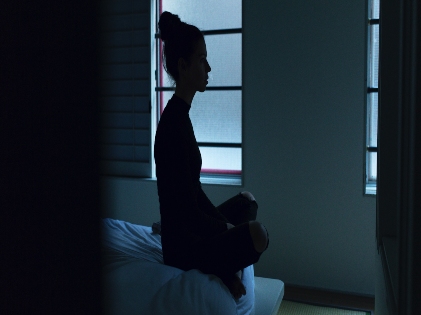
Magnesium – An Effective Mineral to Cure Anxiety and Sleep Deprivation

According to research, 70% of the world’s adult population suffers from sleep deprivation and anxiety, and 30% of children suffer from sleep deprivation too. Sleep deprivation and anxiety are serious mental health issues that require certain medicines and some lifestyle and dietary changes. Recently, it was discovered that magnesium is an effective mineral that can help to prevent, control and manage anxiety and sleeping disorders. Magnesium is a vital mineral in our body that is naturally present in many foods and is also available as a dietary supplement. Thus, by including Magnesium in our diets, we might do our mental and physical health a favor.
Health Benefits of Magnesium

Magnesium is essential to regulate hundreds of primary biochemical reactions in our bodies, from nerve and muscle function to our immune system. Hence, getting enough magnesium is very important for overall health. It is recommended that people should eat a magnesium-rich diet. For example, nuts, dark green leaves vegetables, whole grains, bananas, and yogurt are some magnesium-rich foods.
However, sometimes we fail to take in the recommended amount of the desired minerals in our daily diet. It is always a preferred step to consult a physician so you can make useful changes to your dietary habits, and also include supplements in your diet if need be.
Types of Magnesium Supplements
There are many different types of magnesium supplements available in the market, with magnesium oxide, citrate, and chloride-based supplements being the most common.
Magnesium citrate is the most bioavailable form of the mineral, which means it is absorbed quickly by the body. Some other highly bioavailable magnesium supplements are Magnesium aspartate, Magnesium lactate, Magnesium citrate, Magnesium glycinate, Magnesium L-threonate, Magnesium chloride, and Magnesium oxide. These supplements only include magnesium, but you should look for other supplements which include calcium and vitamin-D too, which are more beneficial.
Which Magnesium Supplement Is Most Effective for Sleep and Anxiety Disorders?

It is still unclear which magnesium supplement is most beneficial for helping with anxiety and insomnia problems. The effectiveness generally depends on how much magnesium a person is already getting from their daily diet. If they are already magnesium-deprived, it is time to consult a physician who can suggest supplements and other dietary changes to help with the magnesium content in the body.
Also, age matters a lot. According to research conducted by the U.S. National Library of Medicine of the National Institutes of Health (NIH), 320 milligrams (mg) of magnesium citrate is beneficial to improving sleep in participants aged over 50.
Moreover, it has been observed that besides magnesium, people are also deprived of other important nutrients and minerals in their bodies, like calcium and vitamin D. Hence, including only magnesium in their daily diet cannot solve the problems.
Generally, it is noticed that magnesium with high bioavailability, such as magnesium glycine, aspartate, citrate, lactate, and chloride are more effective than magnesium oxide and magnesium sulfate, as they circulate better in the body.
How Much Magnesium Is Adequate for Sleep Improvement?
There is no set quantity of magnesium proven perfect for sleep improvement. However, the recommended daily dose of magnesium is 310 to 320 mg for women, and if they are pregnant, they will need more. For men, a dose of 400-420mg magnesium is sufficient. These amounts include all the magnesium to consume, right from daily dietary supplements to food and beverages laden with the mineral. This will ensure that your body gets its daily dose of required magnesium, helping the body and mind equally.
Possible Side Effects of Magnesium Supplement

Magnesium consumption from regular meals is safe, but overdosage can be extremely dangerous. Possible side effects include low blood pressure, nausea, vomiting, stomach cramps, gastrointestinal distress, diarrhea, flushing in the face, inability to void urine, depression, muscle weakness, difficulty breathing, an irregular heartbeat, and heart attack.
It is always recommended to start any dietary supplement after proper body assessment and consultation with a nutritionist. The ideal time to take magnesium, as per many studies, should be 30 minutes before going to bed, preferably with the last meal of the day, for better absorption in the body.
To wrap it up, magnesium is an important mineral to help your anxiety and insomnia as you alter your dietary habits and lifestyle. You should take a proper and balanced diet, avoid sugary and oily food, exercise enough, avoid spending excess time on phones and laptops, develop book reading habits, and maintain a daily bedtime routine. When it comes to dealing with sleep disorders, results don’t come overnight. You need to remain consistent in maintaining your lifestyle and take the prescribed supplements regularly.
More in Relaxation
-
`
Jennifer Aniston’s Timeless Tips for Health and Youthfulness
Iconic Hollywood actress Jennifer Aniston has long been admired for her acting prowess and seemingly ageless beauty and vitality. Now in...
November 22, 2023 -
`
Unleash Your Entrepreneurial Drive: 5 Strategies for Self-Motivation
5. Have an Undying Passion Passion is the driving force behind the world’s most successful entrepreneurs. Self-motivation becomes second nature when...
November 19, 2023 -
`
How to Go Vegan – The Right Way!
The vegan lifestyle has seen a significant surge in popularity lately, and rightly so. Embracing veganism not only fosters personal health...
November 12, 2023 -
`
7 Eye-Opening Reasons to Drink More Water
Water is frequently hailed as the quintessential elixir for life, and rightfully so. Constituting approximately 60% of our total body weight,...
November 1, 2023 -
`
Drake’s Workout Regimen: How the Canadian Rapper Stays Fit
The lights dim, the stage is set, and the crowd’s anticipation is palpable. When the beat drops, there is one Canadian...
October 24, 2023 -
`
Why Six-Figure Family Holidays Are Becoming the New Normal
In the panoramic landscape of the modern travel scene, a particularly glittering trend is emerging, akin to finding a diamond the...
October 21, 2023 -
`
Foods With High Water Content
Water is the elixir of life, and staying adequately hydrated is crucial for maintaining our health and well-being. While sipping on...
October 15, 2023 -
`
The Impact of Wearable Technologies in Health Research
In recent years, wearable technologies have emerged as a powerful tool in health research, revolutionizing how we collect and analyze data...
October 3, 2023 -
`
How Celebrities Stay Fit? Secrets of Chris Pratt, Jennifer Lopez & More
The glitz and glamor of Hollywood may make it seem impossible for celebrities to maintain an enviable physique. But it is...
September 29, 2023















You must be logged in to post a comment Login